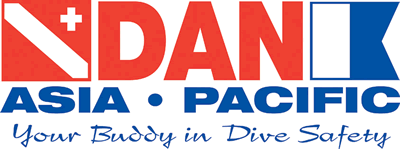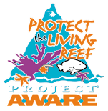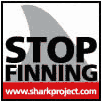DIVERS ALERT NETWORK
 Cebu Dive & Adventure Travel Philippines is proud to support DAN Asia-Pacific (DAN AP). The Divers Alert Network (DAN) is a global network of not-for-profit, member-based, dive safety organisations working for the safety of all divers through education, research and training.
Cebu Dive & Adventure Travel Philippines is proud to support DAN Asia-Pacific (DAN AP). The Divers Alert Network (DAN) is a global network of not-for-profit, member-based, dive safety organisations working for the safety of all divers through education, research and training.
DAN AP provides Worldwide Emergency Evacuation Coverage and optional Dive Injury (Treatment) Insurance Services for Members. In addition the organisation is responsible for funding and/or manning 24-hour diving emergency hotlines throughout the
Asia-Pacific region.
DAN AP is a part of the International DAN Federation of Dive Safety Organisations with worldwide Membership presently exceeding 300,000.
Wherever members live or dive around the world they have peace of mind knowing that DAN is available 24-hours a day, 7 days a week to assist in the event of an accident/illness.
Why is it so important that as Divers we are protected with DAN Membership & Dive Injury (Treatment) Insurance?
It’s all about being prepared for the unexpected, namely dive accidents and illnesses. It’s essential that divers have a reputable organisation to call that will be able to co-ordinate a rescue effort and get them to the most appropriate treatment for their injury or illness. And then there is the issue of cost. DAN protection ensures the diver will not be lumbered with the burden of a potentially hefty invoice in the event of an accident or illness.
An Example
In 2007 DAN was involved in the evacuation of a paralysed diver from the Solomon Islands to Australia. The evacuation cost was around AUD$90,000 (as an aircraft had to be sourced from far away). In addition, the treatment costs were in excess of US$30,000, plus on-going expenses.
The essence of DAN Membership & Dive Injury (Treatment) Insurance is about being prepared. DAN offers members peace-of-mind, which comes from knowing they have the experts in diver accident management to call in the event of a diving accident or illness.
To learn more about DAN, or to become a member, visit www.danasiapacific.org
If you sign up as a DAN AP Member, please do ua the favor and enter DS-0097 in the Referral Field.
Dive Safety Information
Presented by
DAN Asia-Pacific, Your Buddy in Dive Safety
SAFE DIVING TIPS
All diving involves a degree of risk, because, after all, we are air-breathing mammals and are not designed for breathing underwater. If we accept this premise, and admit to ourselves that we are voluntarily entering an alien environment, we are more likely to approach our diving with a sensible degree of caution. We must also acknowledge that we rely totally on our equipment while diving.
These safety hints apply to ALL dives and should be read in addition to those hints for specific types of diving.
- Be trained by a recognised agency. Such training will make you aware of the more common problems you will face underwater, and how to reduce the likelihood of these problems occurring.
- Be sure that you are medically fit for diving. Some medical conditions are not compatible with safe diving, while other conditions may allow you to dive safely with caution. It is important that divers over 40 receive regular medical check-ups.
- Be sure that you are physically fit for diving. Diving may require exertion beyond what is usual for you and it is important that you are fit enough to deal with this.
- Thoroughly prepare and check your gear prior to diving. You rely totally on your equipment while underwater.
- Choose dives that match your training, experience and confidence. Dive within your comfort zone on all dives.
- Listen to your inner voice. If you do not feel right while underwater, or you feel that you have exceeded your comfort level, abort the dive.
- Watch your ascent rate on all dives. You should never exceed an ascent rate of 10m/minute when diving shallower than about 30m. An ascent rate of 5-6 metres per minute is recommended in the last 10m of ascent.
- Complete safety stops on all dives that exceed 10m depth. Safety stops assist with reduction of excess nitrogen, which reduces the risk of DCI. They also slow your ascent rate, by forcing you to stop for a period of time. The rule of thumb is 3-5 minutes at 5-6 metres. An additional deeper stop may sometimes be beneficial after deeper dives.
- Always dive with a buddy. Your safety and your enjoyment will be enhanced by being with a companion while underwater.
- Plan your dive. You and your buddy should agree on depth, time, air cut-off, and safety stops.
- Plan your dive so you surface with a minimum of 50bar. Don’t look at it as wasted air, but as insurance against the possibility of some emergency that causes your air consumption to increase.
- If you have had a layoff from diving, or you have been unwell, do some easier dives to regain your confidence and skill.
- Revise your skills regularly. Practise such survival skills as mask-clearing, regulator removal, and air-sharing regularly.
- Log your dives. A record of your diving history may come in very handy should you ever seek higher levels of training.
DIVING MEDICAL QUESTIONS – DAN DOC
Do you have any diving medical related questions? Do you have any concerns about the effects of diving? Follow the link below to find all the answers to many common and some less common questions relating to diving medical issues.
DIVING EMERGENCIES
As divers, we hope to never find ourselves in need of emergency medical assistance as a result of a diving accident. However, statistics highlight that accidents do happen, even to the most experienced divers, so we should all have a plan of action that will prepare us for the unexpected.
If you ever find yourself in an emergency situation, when in Australia, your first step should be to call the Divers Alert Network (DAN) funded
Diving Emergency Services Medical Hotline on 1800 088 200.
If you are calling from Outside Australia you need to call: +61-8-8212 9242.
This number is available to all divers throughout the world.
As we all know many of the world’s top dive destinations are in remote areas that are difficult to access and often result in significant costs in terms of emergency evacuation and subsequent medical treatment. Therefore, DAN strongly recommends that all divers be adequately covered for such a contingency. And remember, if you are prepared for the unexpected you can focus on what’s most important … enjoying your diving!















